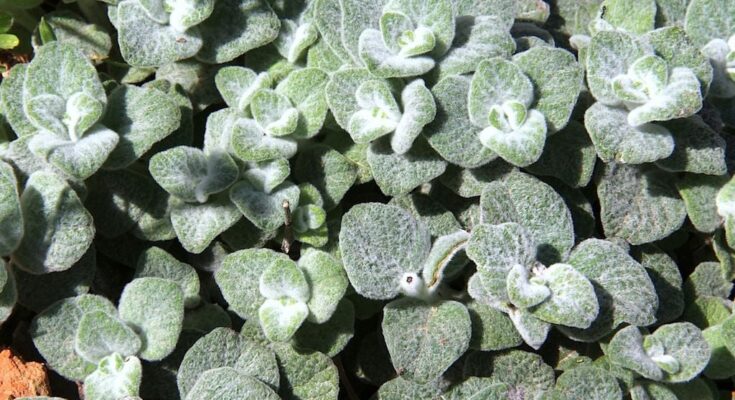
Dittany of Crete is an ancient Greek herb known for its “magical” healing properties which was mentioned in the world of Harry Potter.
Dittany, known as Dictamo in Greek (Δίκταμο), is one of the symbols of Crete. It captivated ancient minds, with notable ancient Greek scholars praising its healing traits. Even to this day, it remains a part of Greek medical and culinary traditions.
Dittany ancient Greek healing herb known since Minoan times
Dittany of Crete is steeped in ancient legends, leading to the adoption of multiple names reflecting its use in Greek culture. Researchers suggest that this slender, small-leaved herb has been known since Minoan times. Excavations at the Knossos Palace near Heraklion uncovered dittany seeds, corroborating this belief.
The common ancient name for this Greek plant was Dittany or Dictamnus, as it was sacred to the Ancient Cretan goddess Diktynna. Alternatively, some scholars speculate that the name may be linked to the Cretan mountain, Dikti. According to ancient tales, this was where Zeus was raised by the goat Amalthea.
Despite its small size, dittany is a very hardy herb that grows best on stones and rocks. Thus, it was traditionally believed that in order to take a risk and climb into the habitat of dittany shoots, a person must be truly in love. Only the deeply committed would dare to harvest and gift it to their beloved as a token of their affection. The plant’s other popular name, Erontas, reflects this belief, derived from Eros, the Ancient Greek god of love and sexuality.
The History and Medical Properties of Dittany
Throughout history, dittany has been revered as a “panacea” or cure for all or almost all ailments. Many great writers of antiquity noted the outstanding medical properties of this Greek plant.
The ancient Greek father of medicine, Hippocrates, used it to treat tuberculosis and stomach diseases. Aristotle described dittany in The History of Animals. He wrote that “it is said that the wild goats of Crete, when wounded by an arrow, go in search of dictanta, which is supposed to have the property of throwing arrows into the body.”
Later, the Romans adopted these traditions. The Roman poet Virgil confirmed the glory of Dittany as a powerful healing plant in the Aeneid Book XII. The tale narrates how the goddess Venus carried a branch of the plant from Mount Ida on Crete to Italy. She sought to heal her son Aeneas, a Trojan War hero, who had sustained injuries in battle.
Today, dittany of Crete remains commercially valuable, commonly utilized for herbal teas. Currently categorized as “rare,” wild dittany is protected by European legislation to prevent extinction. Cultivation efforts mostly focus on the town of Embaros south of Heraklion. It is used in teas and natural beauty products.
Dittany Mentioned in Harry Potter
With such a set of healing properties and a rich history, this herb could not help but end up in one of the main magical worlds, the Harry Potter universe.
Much like in real life, dittany is described as a rare plant with powerful healing properties. This herb is one of the main ingredients of the Wiggenweld Potion, which Professor Severus Snape describes as “a powerful healing potion that can be used to heal injuries, or reverse the effects of a Sleeping Draft.”
Happy #PhytochemicalFriday and #HappyBirthdayHarryPotter! Today: the monoterpenoids carvacrol, cymene, and thymol. These are major aroma compounds in Cretan dittany (Origanum dictamnus), the plant used to prepare Essence of Dittany, a healing potion in the Harry Potter series. pic.twitter.com/XPBVqi3Y4A
— The Busta Lab (@PlantsRChemists) July 31, 2020
In the imaginative universe of JK Rowling, dittany’s reality blends seamlessly with fiction, granting the herb magical qualities. Notably, it is described as possessing the power to halt bleeding and regenerate skin at the site of a wound.
Dittany was one of the plants featured in One Thousand Magical Herbs and Fungi, referenced in Harry Potter and the Philosopher’s Stone. Specifically, in the scene where Harry Potter is bitten on the hand by the snake Nagini in Godric’s Hollow, Hermione Granger employs dittany essential oil for his recovery.
In addition, in the Harry Potter and the Half-Blood Prince, Severus Snape suggested Draco Malfoy use dittany after Harry Potter’s attack, claiming it can prevent the appearance of permanent scars.



